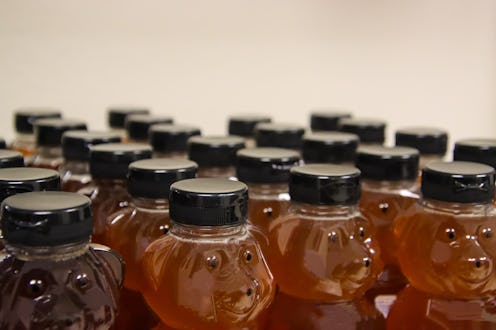Style
How To Treat Your Acne, According to Chinese Medicine

There are a number of ways you can approach treating acne, whether you opt for topical creams, a diet change, or some new skin care products. You may not have thought to turn to Eastern medicine for some advice, but there are some interesting ways to treat your acne according to Chinese medicine. If you've tried different tricks and tips and still find you suffer from breakouts, you might want to give your hand at a new unique approach.
"The beauty of Chinese medicine is that it looks at the root to see what is happening with the patient," says Dr. Elizabeth Trattner, A.P., D.O.M. is a Florida and National Board Certified Doctor of Oriental Medicine and Acupuncture over email. "There are several different ways we treat, including herbs, acupuncture, and dietary therapy. All of those facets will have a treatment woven together to help balance and fix the patient's acne."
In Chinese medicine, acne is most often seen as "heat" in the lung and stomach meridians, according to the Academy of Classical Oriental Sciences. Excess heat in the body rises up to the face. Another cause of acne in Chinese medicine is dampness. "Dampness is caused by too much cold food, oily food, dairy, and processed foods that allow the body's energy to not transform and transport nutrients," says Trattner.
With all that in mind, you might want to try some different remedies to help balance your body out. Here are seven weird, but effective ways to treat your acne, according to Chinese medicine.
1Eating Mung Beans
Mung beans are detoxifying legumes that are loaded with protein, fiber, antioxidants, and phytonutrients and have been popular in the Eastern world for centuries. "They’re delicious when eaten like chickpeas or fava beans, and make a particular great face mask ingredient," says integrative health expert Dr. Taz Bhatia over email. "They're great for depuffing and even healing acne-prone areas like your T-zone (forehead, nose, chin)."
2Trying Acupressure
Acupuncture is another way to help reduce acne, according to Chinese medicine. "Acupressure helps to clear heat and toxins from the body," says Bhatia. It can help regulate the hormones that effect skin secretions, as well reduce inflammation, and bacteria, according to Alban Acupuncture.
3Using Jin Yin Hua
Honeysuckle flowers, also known as Jin Yin Hua, are commonly used in Chinese medicine to treat acne. "Use a topical face wash with Jin Yin Hua, which has antibiotic properties and anti-inflammatory effects," says Bhatia. "According to Traditional Chinese Medicine, it helps clear heat and eliminate toxins and is known for its ability to heal many skin issues."
4Eating Crushed Pearls
"The Chinese herb Zhen Zhu — or crushed pearl — has been used for centuries as part of a more complex formula to treat acne," says Dr. Julie Von over email. Crushed pearls can help to flush toxins from the blood, ease itching, and eliminate rashes, hives, and pus-filled bumps, according to Livestrong.
5Facial Cupping
Facial cupping can be traced back to ancient times to improve the health of the body, but it can also be used on skin. "By using a ‘suction/vacuum' technique, we can control where we want to movement to flow in your face," says skin therapist Ildi Pekar over email. "Most times, gray and dull skin comes from lack of circulation and stimulation and toxin accumulation or stagnation under the skin. When we create better flow, we can guide nutrients to the surface of the skin, reenergizing and refreshing it while draining toxins away from the skin as well."
6Applying Licorice Root
Licorice root, also known as Gan Cao, is also a good option for clearing heat toxins, according to Chinese Medicine Melbourne. It can be taken as a tea, or it can be applied topically to help reduce sebum production and swelling in oily areas.
7Drinking Water & Honey
"Drink 12 ounces of water mixed with 1 tablespoon of honey every morning to help detox the liver," says Bhatia. You can also use honey to apply topically to the face, as it is both anti-inflammatory and antibacterial.
This article was originally published on